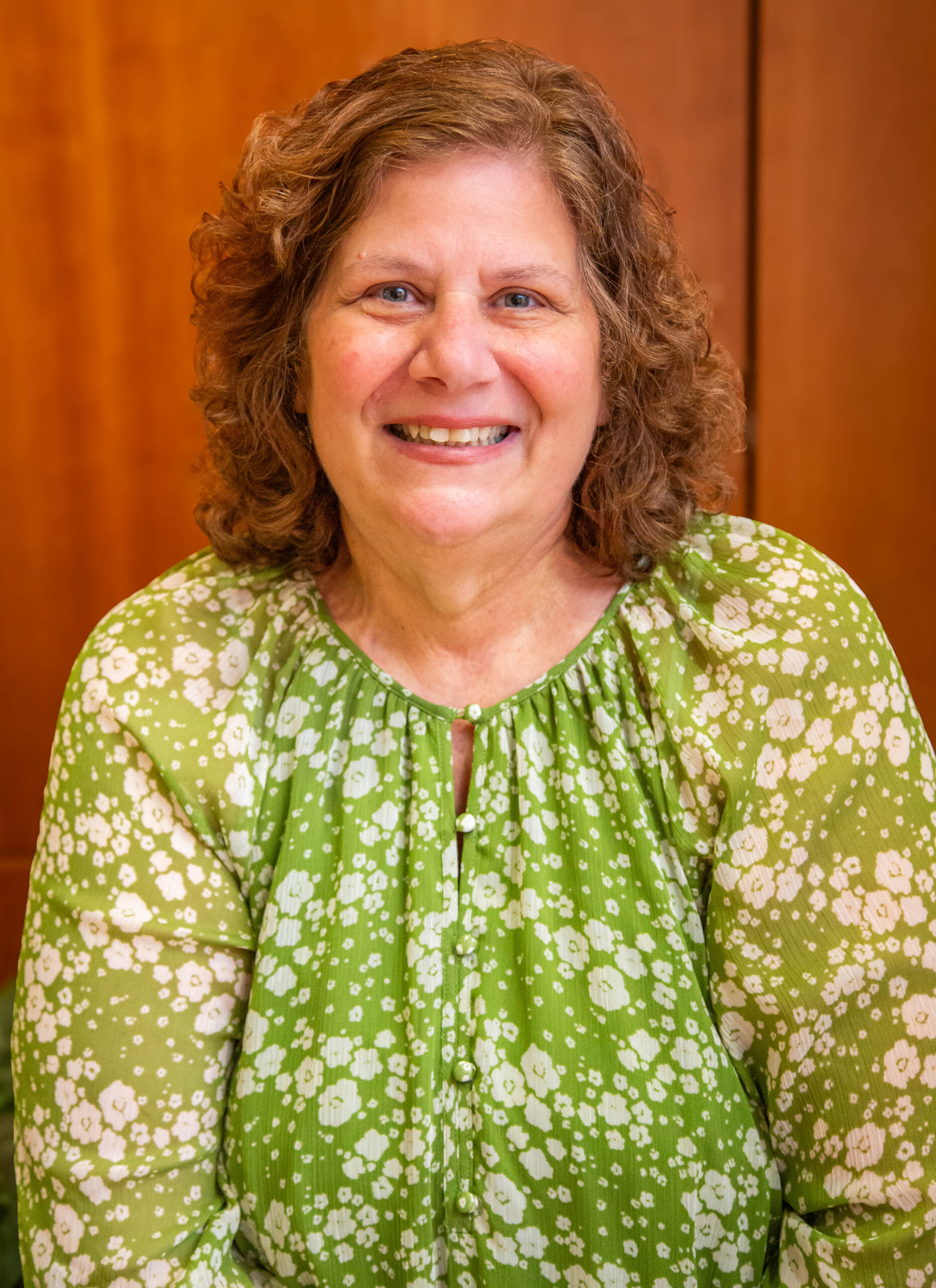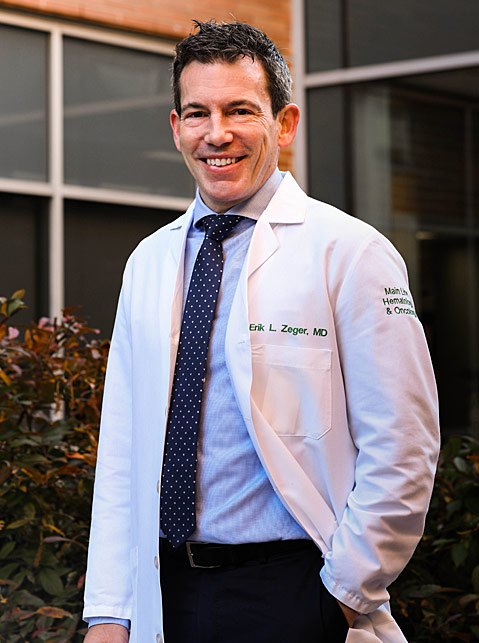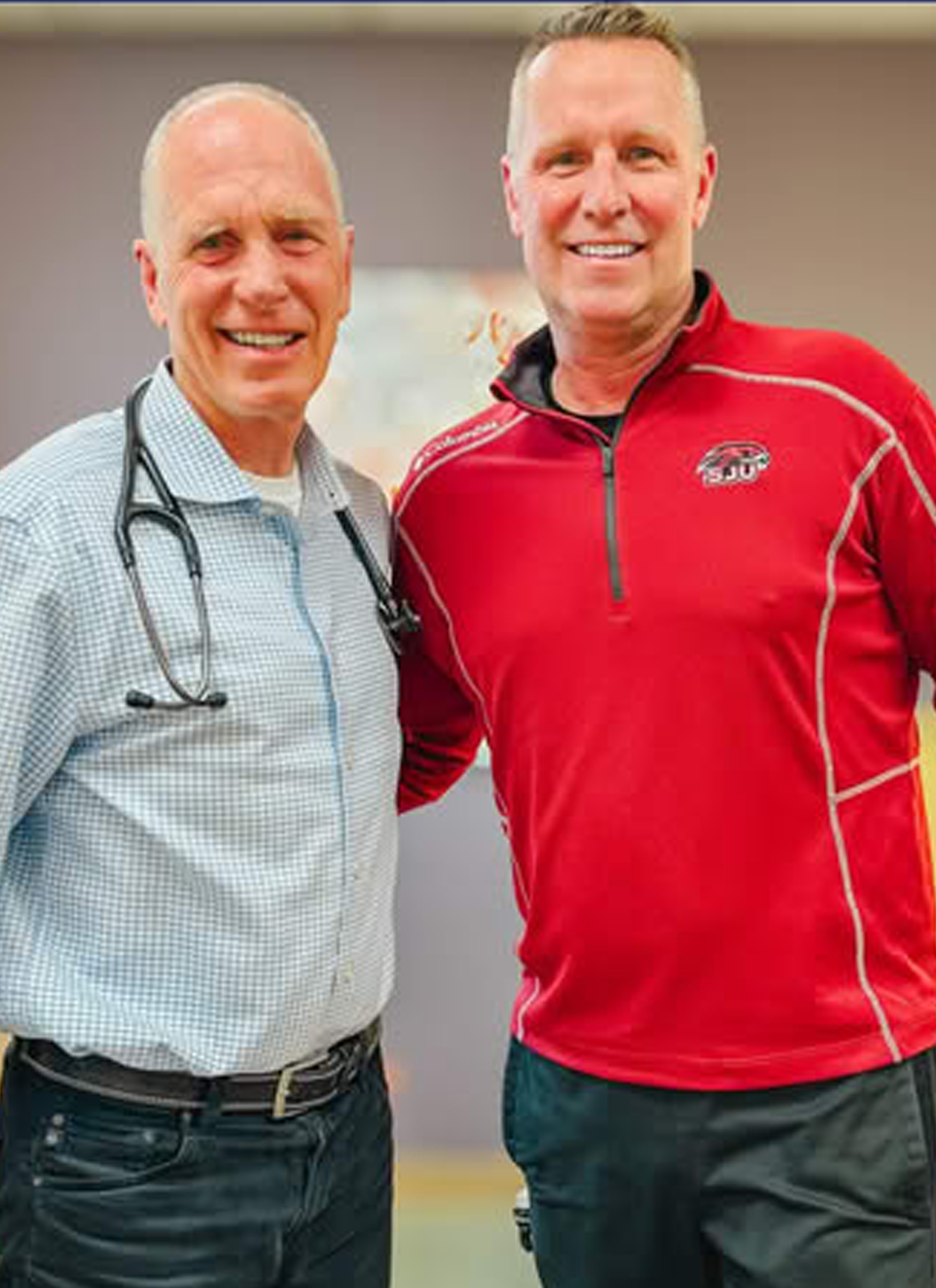 When Kim was diagnosed with stage 4 serous carcinoma ovarian cancer on August 9, 2022, she was hospitalized at St. Mary’s—an overwhelming start to a life-changing journey. But from the very beginning, one constant stood out: her connection with Dr. Krista Isaac. “She’s been more than just my oncologist,” Kim said. “She’s been a constant source of comfort, someone who listens to my fears, answers every question, and truly looks out for me.”
When Kim was diagnosed with stage 4 serous carcinoma ovarian cancer on August 9, 2022, she was hospitalized at St. Mary’s—an overwhelming start to a life-changing journey. But from the very beginning, one constant stood out: her connection with Dr. Krista Isaac. “She’s been more than just my oncologist,” Kim said. “She’s been a constant source of comfort, someone who listens to my fears, answers every question, and truly looks out for me.”
After undergoing initial chemotherapy and a full hysterectomy, Kim began maintenance treatment with Lynparza and Avastin. But within months, the cancer progressed. That’s when Dr. Isaac, working closely with Dr. Marcus from Penn Medicine, began exploring clinical trials. “In any patient with advanced, recurrent cancer I consider if there is a clinical trial option available,” Dr. Isaac said. “This allows a patient to potentially receive a more promising treatment than what I have available as standard of care.” Kim felt their commitment and it made all the difference. “Dr. Marcus and Dr. Isaac are always in contact and truly collaborative,” Kim explained. “I really felt like they were doing everything they could to find the next right step for me.”
In January 2024, Kim enrolled in her first clinical trial with Alliance: Azenosertib. It was a pill she took five days on, two days off. Before starting, she met with Lindsay Klein, the clinical research nurse who supports patients throughout the trial process. “Lindsay walked me through everything—paperwork, logistics, all my questions and concerns,” Kim said. “Of course I was anxious—how would I feel, would it work—but I trust Dr. Isaac.” The trust and respected was recieved on both ends. “Kim is a great clinical trial patient,” Dr. Isaac said. “She is relatively asymptomatic and has tolerated her prior treatments without many side effects.” Kim stayed on Azenosertib for eight months—her longest stretch without progression. When the cancer eventually progressed again, Kim prepared to start a
new chemotherapy combination. But just a week before treatment, she got a call from Dr. Isaac: Kim was eligible for another clinical trial, this time for Rina-S—an infusion given every three weeks that had been showing promise. She started the Rina-S trial in January 2025. Her first scan showed stable disease. Her CA-125 tumor marker, which was 303, dropped to 68. Anything below 35 is considered a healthy range.
And after her fourth infusion, a scan on April 1st brought more good news: all lesions had decreased in size, some significantly, and no new cancer had appeared. Her CA-125 continued to drop, landing at 47.7. “It’s still a little above normal,” Kim said, “but considering where I started, it’s a huge improvement.”
While the process of joining a trial can be overwhelming with scans, EKGs, bloodwork, and paperwork—Kim credits Lindsay for making it manageable. “She sets up everything, checks in constantly, and if any billing confusion arises, she handles it.” “Communication is key,” Dr. Isaac added. “My research coordinator contacts our trial patients on a regular basis, and patients have a separate number to call with any questions or issues.”
The support Kim has received from the entire Alliance team has made a lasting impression. “Everyone from the front desk, to the lab, to the infusion room treats you with kindness. They answer your questions and help lift some of the weight you carry as a cancer patient.” There have been practical benefits too. “Everything related to the trial has been covered like medications, scans, even drugs for side effects. When cancer already brings so much stress, that kind of support makes a big difference.” Kim shared. “Some patients at times find enrolling on a trial overwhelming due to the extra labs or testing needed,” Dr. Isaac acknowledged. “But I would strongly encourage patients to consider enrollment if their physician feels it is a good fit. We’ve developed a robust clinical trial program at Alliance through our relationship with the Sarah Cannon Research Institute.”
“I’ve seen firsthand the potential they hold,” Kim said. “Someone has to help move research forward—why not me?”
Her advice to others considering a trial? “Get informed. Ask every question. Talk with your care team and your loved ones. For me, deciding to do the second trial first meant I still had chemo as a backup. It gave me options, and that matters when you’re living with cancer.”
Today, Kim’s gratitude runs deep—for her care team, for the opportunities clinical research has brought, and for the community she’s found through advocacy. She and her family have participated in the Together in Teal walk/run for three years, raising more than $10,000 for the National Ovarian Cancer Coalition.
“We do it not just for me,” Kim said, “but for everyone facing this diagnosis. I’m incredibly thankful to be part of something that could help others down the line too.”
– Kim, Patient

 Erik Zeger, MD is a board-certified hematologist and medical oncologist who specializes in Pancreatic Neoplasms, Renal Neoplasms and Resection, and Gastrointestinal Neoplasms.
Erik Zeger, MD is a board-certified hematologist and medical oncologist who specializes in Pancreatic Neoplasms, Renal Neoplasms and Resection, and Gastrointestinal Neoplasms.

 When Kim was diagnosed with stage 4 serous carcinoma ovarian cancer on August 9, 2022, she was hospitalized at St. Mary’s—an overwhelming start to a life-changing journey. But from the very beginning, one constant stood out: her connection with Dr. Krista Isaac. “She’s been more than just my oncologist,” Kim said. “She’s been a constant source of comfort, someone who listens to my fears, answers every question, and truly looks out for me.”
When Kim was diagnosed with stage 4 serous carcinoma ovarian cancer on August 9, 2022, she was hospitalized at St. Mary’s—an overwhelming start to a life-changing journey. But from the very beginning, one constant stood out: her connection with Dr. Krista Isaac. “She’s been more than just my oncologist,” Kim said. “She’s been a constant source of comfort, someone who listens to my fears, answers every question, and truly looks out for me.”